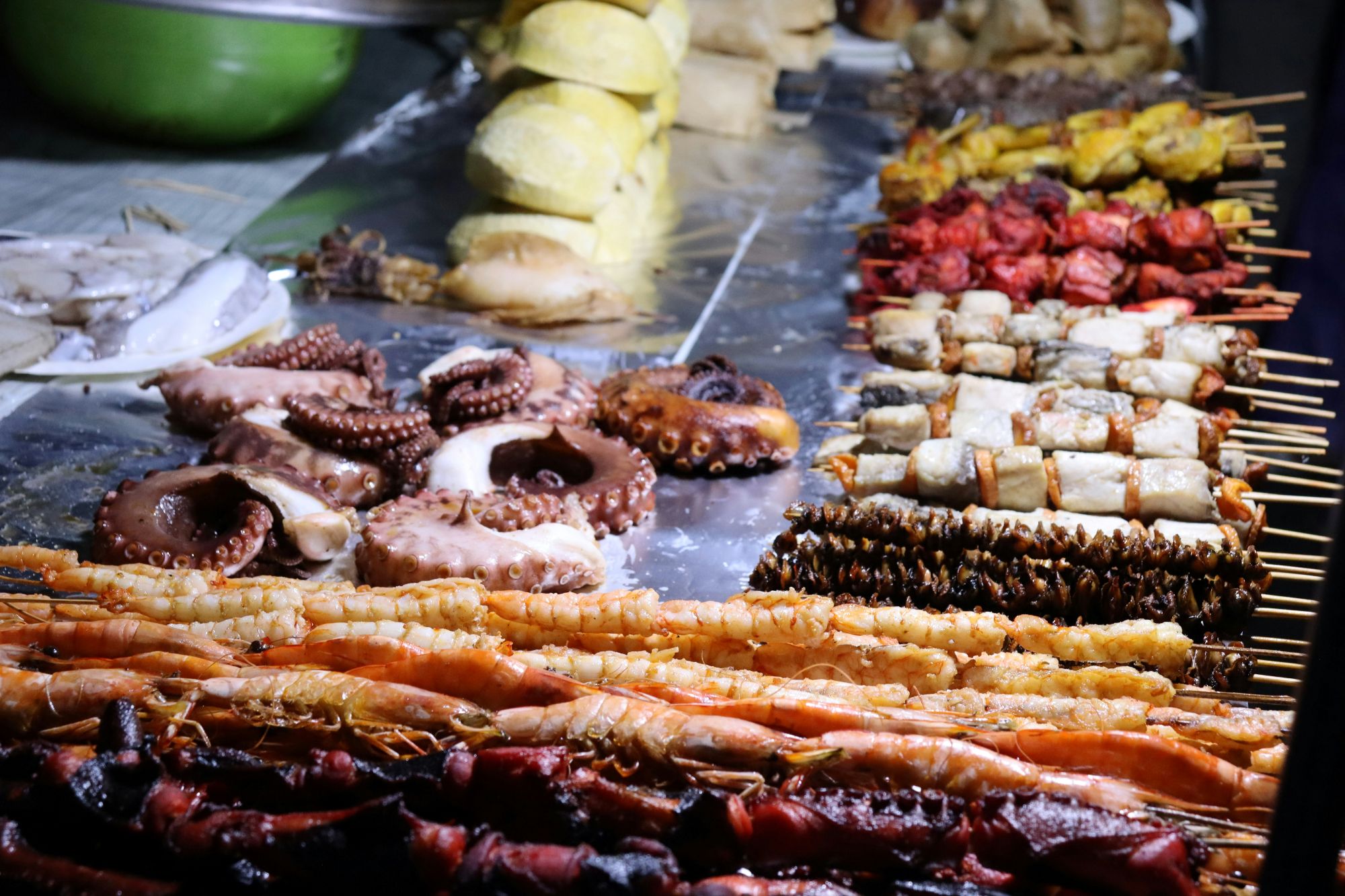
A Taste of Zanzibar: Spices, Seafood & Swahili Flair
Must-Try Local Dishes in Zanzibar
1. Zanzibar Pizza (Street Food Icon)
-
A crispy-fried dough filled with your choice of meat, vegetables, egg, and cheese.
-
Found at Forodhani Night Market in Stone Town.
-
Street food with flair—watch vendors prepare it right in front of you.
2. Urojo (Zanzibar Mix)
-
A tangy turmeric soup with bhajias (fritters), mashed potatoes, boiled eggs, coconut, and chili sauce.
-
Popular mid-day street meal.
-
Layers of texture and spice in one bowl.
3. Octopus Curry
-
Slow-cooked octopus in coconut milk, garlic, tomato, and curry spices.
-
Common in beach restaurants and homestays across the island.
4. Pilau Rice
-
Spiced rice dish with cloves, cinnamon, cumin, cardamom, and often chicken or beef.
-
A Swahili staple served at weddings and celebrations.
5. Mandazi
-
Sweet, fried dough similar to donuts, often served for breakfast.
-
Perfect with chai or local coffee.
Where to Eat Like a Local in Zanzibar
Forodhani Gardens Night Market (Stone Town)
-
Best for: Zanzibar pizza, grilled seafood skewers, sugarcane juice.
-
Go around sunset; great for budget travelers and street food lovers.
Lukmaan Restaurant (Stone Town)
-
Casual, cafeteria-style place serving authentic dishes.
-
Try the octopus curry, pilau, and fresh juice blends.
Mercury’s Restaurant (Stone Town)
-
Named after Freddie Mercury (born in Zanzibar).
-
Fusion of Swahili and international food with sunset views.
Taarab Restaurant (Park Hyatt Zanzibar)
-
Upscale experience for traditional food in a refined setting.
-
Great for a final night dinner.
Local Beach Shacks (Kendwa & Paje)
-
Simple menus of grilled fish, chips, and chapati.
-
Fresh catch-of-the-day is a must.
Cultural Context & Food Tips
-
Halal food: Most Zanzibari food is halal due to the island’s Muslim majority.
-
Eat with your hands? In some local spots, especially rural areas, you’ll be offered food with no cutlery—feel free to join in!
-
Vegetarian options: Easy to find—try coconut spinach, okra curry, and vegetable samosas.
-
Drink caution: Stick to bottled water, and ask if juices are made with filtered water.
Spice Tours & Cooking Experiences
Don’t miss a Zanzibar spice tour, where you can see, smell, and taste fresh cardamom, vanilla, nutmeg, and cloves. Many include a Swahili cooking class at the end—ideal for food lovers wanting hands-on experience.
Book Your Culinary Getaway
-
Trip.com – Book culinary tours, cultural excursions, and seaside stays near foodie hot spots.
-
Kiwi.com – Great for flexible flights to Zanzibar and nearby foodie destinations like Dar es Salaam or Mombasa.
Summary
Zanzibar’s food is as rich and vibrant as its culture. Whether you’re sampling street food in Stone Town or savoring seafood on a moonlit beach, the island’s culinary scene is a delicious adventure for every traveler.
FAQs
Q: What food is Zanzibar known for?
A: Zanzibar is famous for seafood curries, Zanzibar pizza, pilau rice, and its spice-infused Swahili cuisine.
Q: Is the food in Zanzibar spicy?
A: Yes, but not overwhelmingly. Spices like cardamom, cloves, and cinnamon add aroma and warmth rather than extreme heat.
Q: Where can I try authentic local food?
A: Lukmaan Restaurant, Forodhani Market, and local beach shacks are best for authentic eats.
Q: Can vegetarians eat well in Zanzibar?
A: Absolutely. There are plenty of vegetarian dishes like coconut vegetables, lentil stews, and fried plantains.
Q: Are there food tours in Zanzibar?
A: Yes! Spice tours with cooking classes are a must-do for foodies.
